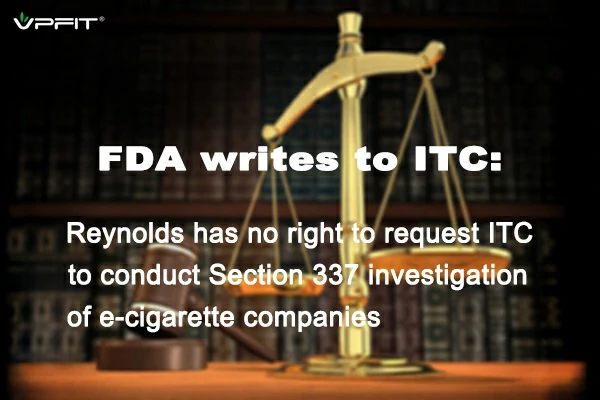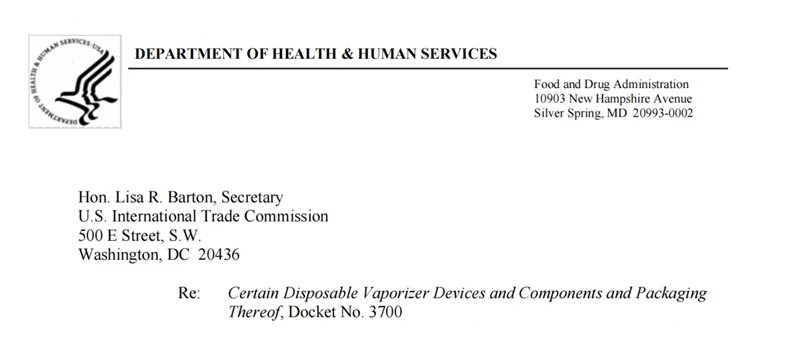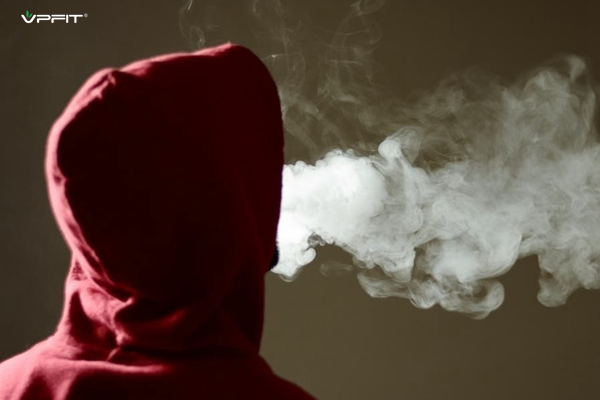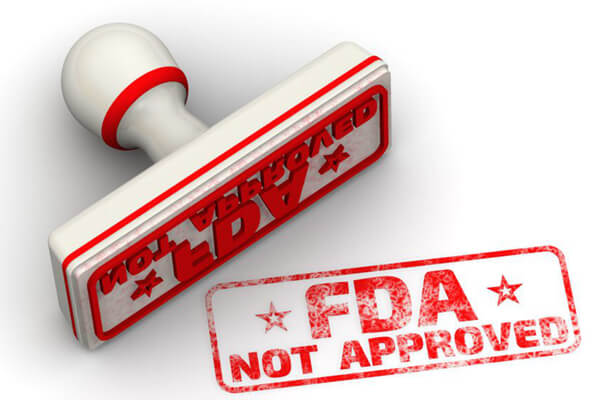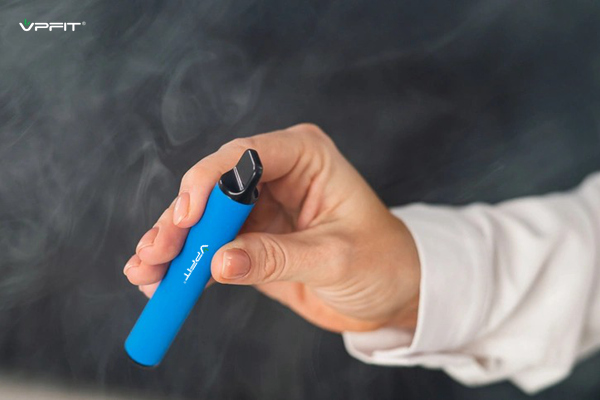
OEM vape manufacturing processes | Create your OEM E-cigarette
November 3, 2023
China Vape Exported $15.58 Million to France in Sep 2023
November 6, 2023Recently, the US FDA sent a letter to the ITC, emphasizing that Reynolds Tobacco has no right to ask the ITC to investigate 26 e-cigarette companies.
On October 13, Reynolds Tobacco filed an investigation application (337 investigation) with the U.S. International Trade Commission (ITC). It accuse 26 Chinese and American e-cigarette manufacturer and distribution companies of unfair import practices.
Will the FDA letter have any impact on the progress of the 337 investigation of 26 e-cigarette manufacturers and companies?
To answer this question, we consulted lawyer Tang Shunliang, an expert on Chinese e-cigarette law. Attorney Tang believes that it is beneficial for the e-cigarette companies under investigation for the FDA to take the initiative to cite legal basis to submit a complaint to the ITC.
The following is Attorney Tang’s view:
Judging from the meaning expressed in the FDA letter, it pointed out that the ITC had no jurisdiction over the case. In addition, FDA did not clearly state that it had taken enforcement actions against the e cigarette companies involved in the case.
However, it is clearly pointed out that Reynolds Tobacco, as a private enterprise, cannot be an applicant to submit the investigation of this case to 337.
Compared with the intellectual property 337 investigation, this case is more like a government department at the FDCA (Federal Food, Drug and Cosmetic Act) level. The law has given the FDA the right to enforce and litigate non-compliance. And there is no need for companies to file lawsuits through “private remedies.”
However, the FDA did not directly say in the letter that the ITC has no jurisdiction at all. According to the evidence provided by Renault, the defendant company had problems such as the “customs code” of imported goods. These problems are not within the scope of FDA management, but for the ITC, they are The grounds for sanctions may be too small.
The more content of the letter is that the FDA introduced its regulatory bill and implementation status of e-cigarette products in the letter.
The FDA stated that it has taken and will continue to take advisory and enforcement actions against tobacco products sold without FDA authorization.
In addition, the FDA has filed civil penalty complaints involving 35 e-cigarette manufacturers and 22 retailers. Moreover, there are six permanent injunction complaints against companies selling illegal e-cigarettes. In addition, the FDA has issued multiple import warnings targeting such products. These contents are also equivalent to defending their insufficient “enforcement of law”.
In fact, the workload of FDA’s review of e-cigarettes is too large. Some electronic cigarette companies apply for review and and they can start to sell e-cigarettes when they have only got the reviewed registration number.
The FDA also stated that private companies have no right to ask the government to enforce the FDCA.
The letter mentioned that the FDA is the only expert agency responsible for determining whether a product complies with the FDCA. Congress authorized the FDA to use a variety of enforcement tools to address the distribution of violate products.
The FDA may bring civil injunction proceedings against companies that distribute such products. But Congress prohibits private parties from taking action to enforce the FDCA.
Conclusion
On the issue of compliance supervision of e-cigarettes in the US, Renault’s move shows its ambition to use legal “weapons” to carve up the US e-cigarette market. Therefore, in the letter, the FDA directly named the BAT e-cigarette brand (VUSE) itself also has similar non-compliance issues.
For now, the situation is favorable for these 26 e-cigarette manufacturers and distribution companies.
Because of the FDA’s voice, if the ITC is ultimately excluded from jurisdiction, the Reno 337 investigation case will not be so smooth. But it can also appeal to the court against the ITC.


